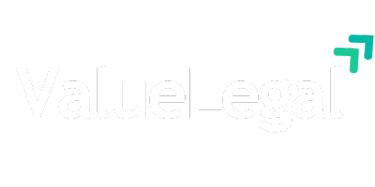How HR Technology Trends are Transforming Sponsorship Compliance in the UK
11/2/20255 min read


The Impact of AI on Sponsorship Compliance
Artificial intelligence (AI) is emerging as a pivotal force in reshaping sponsorship compliance in the UK. The ability of AI to analyze vast datasets facilitates a level of regulatory insight that was previously unattainable. As organizations navigate the complexities of sponsorship laws, AI technologies can streamline the compliance process by evaluating historical data and providing real-time insights into regulatory requirements. This capability is particularly significant in a landscape where non-compliance can lead to substantial financial penalties and reputational damage. By leveraging machine learning algorithms, AI systems can identify patterns and anomalies that may indicate compliance risks.
Moreover, AI is instrumental in automating the monitoring of sponsorship activities. Traditional compliance methods often involve manual processes that are not only time-consuming but also prone to human error. The integration of AI-powered solutions, like ValueLegal, provides organizations with tools that automatically track and analyze sponsorship agreements and related activities. These systems can flag potential issues or deviations from established guidelines, allowing organizations to address compliance risks proactively. With AI's continuous learning capabilities, these tools can adapt to changing laws and regulations, ensuring ongoing compliance in a dynamic regulatory environment.
The proactive detection of compliance risks is crucial for organizations seeking to maintain integrity and transparency in their sponsorship dealings. By identifying potential legal issues before they escalate, AI reduces the likelihood of violations that could result in costly repercussions. As organizations increasingly adopt AI technology in their compliance strategies, the role of human oversight remains vital. Human expertise in conjunction with AI can cultivate a comprehensive approach, blending the strengths of technology with the nuanced understanding of legal requirements. This synergy ultimately enhances an organization's ability to navigate the intricate landscape of sponsorship compliance effectively.
Automation and Its Role in Simplifying Regulatory Requirements
The landscape of sponsorship compliance in the UK is experiencing significant transformation due to the integration of automation technologies. As organizations grapple with the increasingly complex regulatory environment, automated workflows are emerging as vital tools that enable businesses to streamline their compliance processes. The deployment of automation in HR practices alleviates the administrative burden traditionally placed on HR teams, allowing them to redirect their focus toward strategic initiatives rather than being mired in manual compliance checks.
Automated systems facilitate timely reporting and enhanced document management, which are critical components of adherence to regulatory requirements. These systems can track and manage compliance deadlines, ensuring that necessary documentation is submitted in a timely manner, thus reducing the risk of non-compliance and potential penalties. Furthermore, the implementation of automation can significantly minimize human errors that are often associated with manual data entry and compliance procedures. This not only boosts accuracy but also fosters greater confidence in the compliance process.
ValueLegal, a prominent player in the HR technology sector, offers innovative automation features that specialize in simplifying regulatory compliance. Their solutions provide a comprehensive overview of sponsorship requirements, enabling teams to systematically ensure adherence to legal obligations. By leveraging automation, organizations can improve their operational efficiencies, achieving a higher degree of compliance management without overwhelming their staff.
Incorporating automation into sponsorship compliance processes not only contributes to organizational efficiency but also enhances overall responsiveness to regulatory changes. As the compliance landscape continually evolves, adopting these technological advancements will become imperative for businesses aiming to maintain robust sponsorship strategies while adhering to legal standards.
HRMS Integration for Comprehensive Compliance Management
In the ever-evolving landscape of employment regulations, the integration of Human Resource Management Systems (HRMS) with compliance tools has become vital for organizations, particularly in the context of managing sponsorship compliance in the UK. A well-implemented HRMS can serve as a central hub for storing essential HR data, compliance documentation, and reporting functionalities. This centralized approach allows for streamlined operations, ensuring that all aspects of sponsorship compliance are managed effectively.
One of the primary benefits of HRMS integration is the enhanced accessibility of information. Organizations can easily retrieve data related to sponsorships, such as visa status and employee compliance documents. This level of accessibility not only simplifies the auditing process but also helps HR professionals to proactively address compliance issues before they escalate into significant problems. Furthermore, by leveraging ValueLegal’s HRMS integration capabilities, organizations can create a more structured and transparent system for tracking all sponsorship activities.
Moreover, integration facilitates real-time updates and notifications regarding changes in regulations or compliance requirements. This feature is crucial in maintaining adherence to UK regulations, which can frequently change, thereby posing significant risks to organizations failing to keep pace. A centralized HRMS that integrates compliance tools ensures that organizations receive timely alerts, reducing the potential risk of violations and enhancing overall legal compliance.
Additionally, having all relevant data in one system allows for comprehensive reporting capabilities. Organizations can generate reports that illustrate compliance status, upcoming renewals, and areas that require attention. This analytics-driven approach not only fosters better decision-making but also serves as a valuable tool for compliance audits and assessments. By investing in HRMS integration, businesses significantly improve their capability to manage sponsorship compliance, ultimately leading to a more compliant and efficient operational environment.
Case Studies: Successful Implementation of HRTech in Compliance
As organizations in the UK increasingly turn to HR technology to manage sponsorship compliance, several case studies have emerged that highlight the transformative power of these solutions. One notable example is a leading financial services firm that integrated an advanced Human Resource Management System (HRMS) to streamline its compliance processes. By automating document management and electronic monitoring of employee visa statuses, this organization reduced manual errors and significantly enhanced tracking capabilities. As a result, they experienced a 30% decrease in compliance-related incidents within the first year of implementation.
Another compelling case focuses on a prominent technology company that adopted artificial intelligence (AI) to improve their sponsorship compliance framework. The company utilized AI-driven analytics to predict potential compliance risks by analyzing historical data and associating it with current employee profiles. This proactive approach allowed them to address issues before they escalated, improving their response time and fostering a compliance-oriented culture within the organization. The measurable outcome was not only a 25% increase in compliance audit readiness but also a notable boost in employee morale due to enhanced job security and workplace transparency.
Additionally, ValueLegal has played a significant role in these transformations, offering tailored solutions that address specific regulatory challenges faced by organizations. For instance, a multinational corporation leveraged ValueLegal’s compliance platform to manage its sponsorship database more effectively. This integration facilitated real-time updates and ensured that all sponsorship activities were documented in compliance with UK immigration laws. With the support of such HR technology, the corporation reported a measurable improvement in compliance efficiency, reducing the time spent on audits by nearly 40%.
These case studies illustrate how the strategic implementation of HR technology can revolutionize sponsorship compliance initiatives in the UK. They showcase the importance of adopting innovative solutions to overcome challenges, ensuring organizations remain compliant while driving operational efficiencies. As firms continue to navigate the complex landscape of regulatory requirements, the integration of HR technology will undoubtedly be integral to future compliance strategies.
